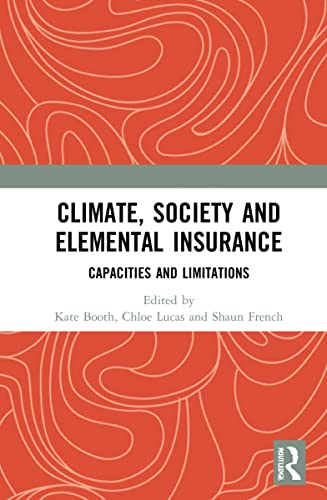

Most ebook files are in PDF format, so you can easily read them using various software such as Foxit Reader or directly on the Google Chrome browser.
Some ebook files are released by publishers in other formats such as .awz, .mobi, .epub, .fb2, etc. You may need to install specific software to read these formats on mobile/PC, such as Calibre.
Please read the tutorial at this link: https://ebookbell.com/faq
We offer FREE conversion to the popular formats you request; however, this may take some time. Therefore, right after payment, please email us, and we will try to provide the service as quickly as possible.
For some exceptional file formats or broken links (if any), please refrain from opening any disputes. Instead, email us first, and we will try to assist within a maximum of 6 hours.
EbookBell Team

0.0
0 reviewsIn this book, world-leading social scientists come together to provide original insights on the capacities and limitations of insurance in a changing world.
Climate change is fundamentally changing the ways we insure, and the ways we think about insurance. This book moves beyond traditional economics and financial understandings of insurance to address the social and geopolitical dimensions of this powerful and pervasive part of contemporary life. Insurance shapes material and social realities, and is shaped by them in turn. The contributing authors of this book show how insurance constitutes and is constituted through the traditional elements of earth, water, air, fire, and the novel element of big data. The applied and theoretical insights presented through this novel elemental approach reveal that insurance is more dynamic, multifaceted, and spatially variegated than commonly imagined.
This book is an authoritative source on the capacities and limitations of insurance. It is a go-to reference for researchers and students in the social sciences – particularly those with an interest in economics and finance, and how these intersect with geography, politics, and society. It is also relevant for those in the disaster, environmental, health, natural, and social sciences who are interested in the role of insurance in addressing risk, resilience, and adaptation.
The Open Access version of this book, available at www.taylorfrancis.com, has been made available under a Creative Commons Attribution-Non Commercial-No Derivatives 4.0 license.